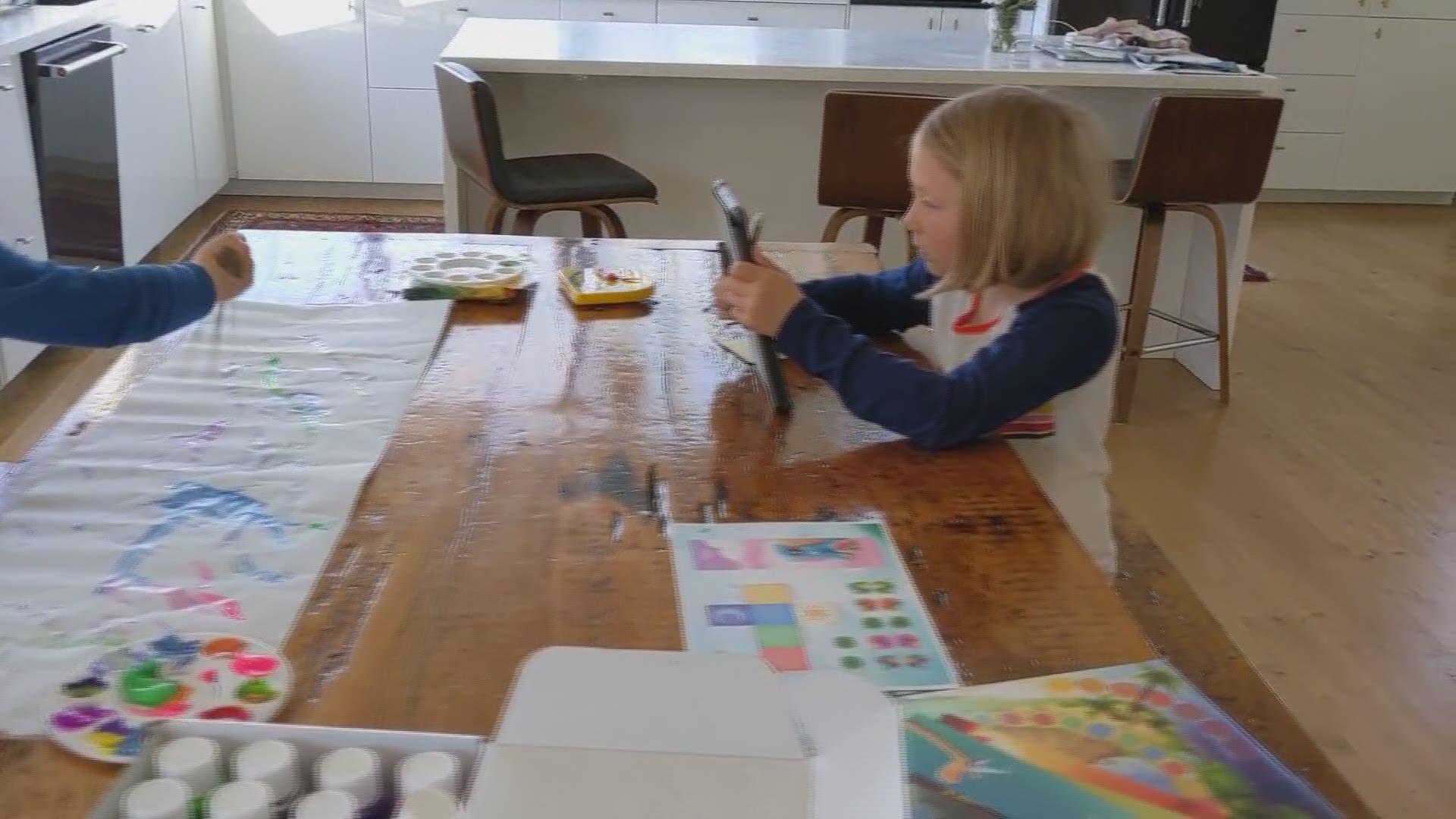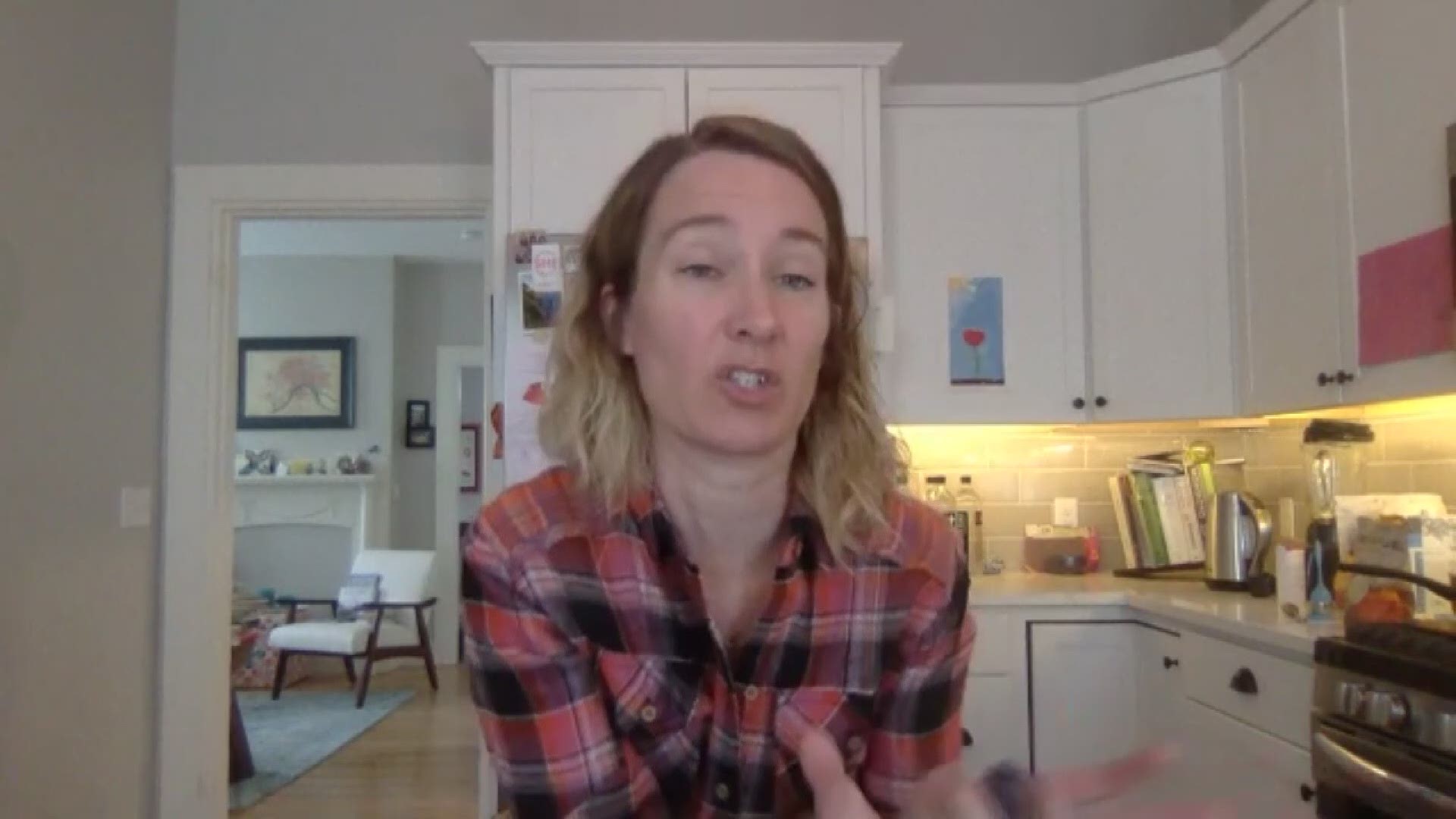MAINE, USA — This is a stressful time for adults, but with schools being closed due to coronavirus, COVID-19 pandemic, some kids may also be feeling stress, depression and anxiety.
"He feels like we are punishing him when I make him go from one fun thing to school work...she kind of screeches and protests when we try to take the iPad away," said Mira Ptacin referencing her two kids.
Mira Ptacin lives on Peakes Island with her family. They are lucky to have plenty of outdoor options to walk and grab fresh air every day. But many kids miss their school, their teachers, their friends, their extracurricular activities, and their other family members.
"It's hard for them to process that this isn't just one giant vacation," said Ptacin.
Maggie Birlem is also a mother of two children.
"My daughter, I think is having a harder time being away from friends, that's really just a big part of their development," said Birlem.
Jessica Healy is a Licensed Clinical Social Worker in Portland.
"Sometimes it's a good opportunity to provide incentives for kids," said Healy.
Tanna Gabler is a registered play therapist and the owner of Play It Forward in Portland, Gabler has been working with kids for ten years.
She says it's normal for kids these days to experience feelings of anxiety and depression. Parents should invite children to ask questions and let them share their worries.
"Headaches and chronic stomach aches are a really big indicator of anxiety," said Gabler.
Other anxiety signs parents should be looking for include:
- irritability
- tantrums
- questioning for re-assurance
- trouble separating from parents
- nightmares
For depression, try to look for things that are persistent, that might indicate depression instead of sadness:
- irritability
- fatigue
- general sadness or withdrawn
- nightmares or trouble sleeping
- loss of motivation or being tired
- showing a lack of interest in activities
"So when that happens the first thing you really want to do as a parent is open up a conversation with your kiddo and invite them to talk to you," said Gabler. "Sometimes it can be helpful if parents name some of those emotions with a wondering tone...I wonder if you are feeling a little sad right now that you can't see your friends?"
That way you can open a conversation of feelings in the household.
Gabler says in a time of crisis everyone should do something that makes you feel productive as a family, together.
Healy says it's very important to follow a routine or schedule throughout the day, that way kids have something to look forward to.
"Our brain enjoys structure and routine, so we learn better with structure," said Healy.
Some ideas include:
- writing letters to senior citizens and dropping them off at a senior care facility
- cooking together
- making a daily family video journal
- planting fruits and veggies in your back or front yard
- family art project
In your schedule try to also include exercise routines with your kids including yoga, stretching, running, hiking...and if you can (parents) also do the exercises with your kids!
Gabler says everyone's mental health might be affected because by nature we are incredibly social creatures. "We thrive with connection, we crave connection," said Gabler.
"Allowing children time to play is going to be really important, it's how they make sense of their world and work through their worries," said Gabler.
"It's all about finding balance...making sure that they're having fun without constantly feeling that you have to entertain them," said Birlem.
This is also a great time to foster independent playing while parents work.
"Independent play is probably an essential need for parents right now as they navigate working and being at home with their kids," said Healy.
"It's a skill that we have been losing over time as we become more focused on screens," said Gabler.
Gabler and Healy say screen times are going to be used a lot more these days, but parents should be very vigilant about what the kids are watching.
"Even is we fail at homeschooling, the kids feel loved and safe during this whole pandemic, then I know that we are doing ok," said Ptacin.
The experts say, parents also need some to find time for themselves.
"Self-care of parents, I know this is impossible because we're like make sure you're eating and sleeping and exercising, but it's really going to be so important for parents because the more they can manage their own anxiety then the better they are going to be with their kids. We feed off of the emotional state that they're in," said Gabler.
If you are seeing concerning behaviors in your kids, counselors recommend you seek help with a mental health professional or with your pediatrician.
Many children therapists like Jessica Healy and Tanne Gabler are offering telehealth services.
Another great resource is the NAMI Maine Helpline.
RELATED: Music & Movies to Enjoy at Home


